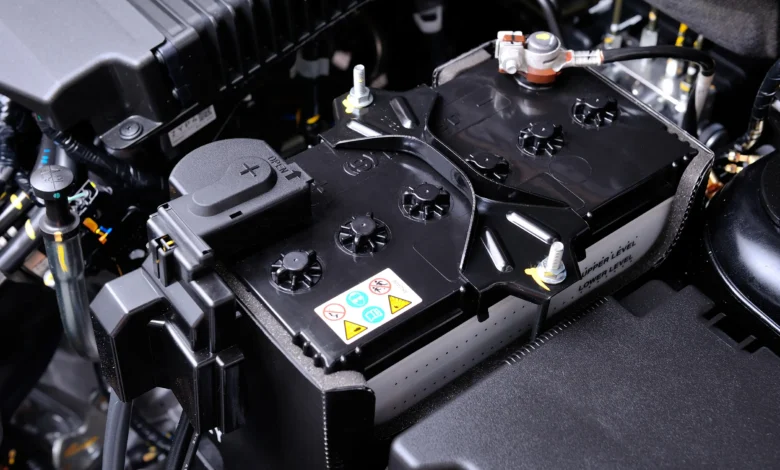Why Upgrading to an Auxiliary Battery is Essential for Running Multiple Devices in Your Vehicle

Upgrading to an auxiliary battery is essential for anyone who depends on multiple devices in their vehicle. Whether you’re traveling, camping, or using electronic equipment on the go, an auxiliary battery offers a stable and reliable power supply. In today’s tech-driven world, where convenience is paramount, having a backup power system in your car can truly transform your experience. Moreover, integrating your auxiliary battery with an EV charger elevates your vehicle’s energy management, ensuring all your devices stay powered while keeping your main battery charged and ready for the road ahead. This synergy not only enhances your journey but also provides peace of mind, allowing you to focus on your adventures without the worry of running out of power.
What is an Auxiliary Battery?
An auxiliary battery is a secondary power source installed in your vehicle, designed to provide energy to run electrical devices without draining the main battery. While the primary battery powers essential vehicle functions like starting the engine and running lights, the auxiliary battery supports additional devices, such as refrigerators, navigation systems, lights, and mobile phones. This separation of energy consumption prevents the main battery from getting depleted and ensures your vehicle remains operational.
Benefits of Installing an Auxiliary Battery in Your Vehicle
One of the main reasons people opt for an auxiliary battery is the convenience it offers. When you’re on a long road trip or camping adventure, you don’t want to worry about your devices losing power. Here are some key advantages of upgrading to an auxiliary battery:
- Power Multiple Devices Without Stressing the Main Battery
A single vehicle battery might not have the capacity to handle all the gadgets we use today, such as cameras, GPS systems, and portable coolers. An auxiliary battery ensures you can run these devices smoothly without impacting your vehicle’s primary functions.
- Protect the Main Battery
Relying on one battery for everything can lead to unexpected breakdowns. The auxiliary battery prevents such scenarios by isolating your car’s essential functions from your additional power needs. With an auxiliary battery, you’re able to protect the main battery from overuse, ensuring a longer lifespan.
- Enhanced Power for Outdoor Activities
If you enjoy camping or spending extended periods outdoors, an auxiliary battery will provide sufficient power for devices like lights, portable cookers, and entertainment systems. It allows you to stay off-grid without worrying about running out of power.
- Increase the Resale Value of Your Vehicle
Installing an auxiliary battery system is seen as an upgrade, and vehicles with additional power systems are often valued higher in the resale market. It’s an investment that can pay off when you decide to sell your vehicle.
- Safe and Reliable Power Supply
With an auxiliary battery, you can ensure that your devices receive stable power, even if you’re running them for extended periods. This stability is crucial for sensitive electronics like laptops, medical devices, or communication tools.
How Does an Auxiliary Battery Work?
An auxiliary battery functions by creating a dual battery setup, where the main battery focuses on running the vehicle while the auxiliary battery powers additional devices. These two batteries work in tandem but remain separate, so the auxiliary battery doesn’t affect the starting power or operation of the primary battery.
In many setups, a battery isolator is used to ensure that the two batteries work independently. The isolator allows the main battery to be fully charged first before directing power to charge the auxiliary battery. This system prevents one battery from draining the other, ensuring both stay charged for their respective tasks.
Choosing the Right Auxiliary Battery for Your Vehicle
When selecting an auxiliary battery, you must consider the type of devices you’ll be powering and the length of time you’ll be using them. Here are a few factors to consider:
- Battery Capacity (Amp-Hours or Ah)
The capacity of an auxiliary battery is measured in amp-hours. The higher the amp-hour rating, the more power the battery can store and supply to your devices. For extended trips or heavier power usage, a battery with a higher capacity is recommended.
- Battery Type
Common types of auxiliary batteries include deep cycle batteries, lithium-ion batteries, and AGM (Absorbent Glass Mat) batteries. Each type has different performance characteristics, such as charge time, lifespan, and energy output. Lithium-ion batteries are often preferred for their longer life and higher efficiency, though they are more expensive than traditional deep cycle batteries.
- Compatibility with Vehicle Setup
Not all vehicles are ready for an auxiliary battery, so you may need professional installation to ensure the system is wired correctly. It’s crucial that your vehicle’s alternator and electrical system can handle the added battery without causing strain.
How to Install an Auxiliary Battery in Your Vehicle
If you’re considering installing an auxiliary battery, you can either do it yourself or hire a professional. For DIY enthusiasts, installation involves mounting the battery in an appropriate location, wiring it into your vehicle’s electrical system using cables and a battery isolator, and connecting it to the devices you wish to power.
For those who prefer a professional approach, many auto shops specialize in installing auxiliary battery systems. They will ensure that the wiring is done safely and the system is set up to meet your specific needs.
FAQs
1. What is the primary function of an auxiliary battery in a vehicle?
An auxiliary battery provides power to additional devices, ensuring that the main battery remains focused on starting and running the vehicle.
2. Can an auxiliary battery drain my main battery?
No, when installed properly, an auxiliary battery will not drain the main battery, thanks to a battery isolator, which keeps them operating independently.
3. Is an auxiliary battery necessary for camping?
Yes, an auxiliary battery is extremely useful for camping as it allows you to run electronic devices, lights, and even cooking equipment without depleting your vehicle’s main battery.
4. What type of auxiliary battery should I get for my vehicle?
The best type of auxiliary battery depends on your power needs and budget. Lithium-ion batteries offer great efficiency but are more expensive. AGM and deep cycle batteries are also popular options.
5. Can I install an auxiliary battery myself?
Yes, it is possible to install an auxiliary battery yourself, but you must have the right tools and knowledge to do so safely. Professional installation is recommended if you’re unfamiliar with vehicle electronics.
Conclusion
Upgrading to an auxiliary battery is essential for those who rely on multiple devices in their vehicle. Whether for convenience on the road, during outdoor adventures, or simply for peace of mind, an auxiliary battery provides the additional power you need without draining the main battery. By choosing the right battery, ensuring proper installation, and understanding the benefits, you can optimize your vehicle’s power system for all your needs.





